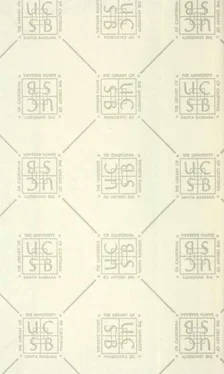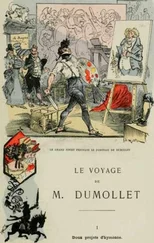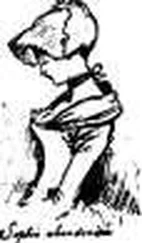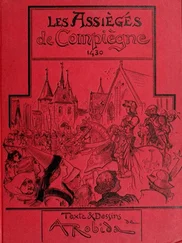Albert Robida - Yester-year; ten centuries of toilette from the French of A. Robida
Здесь есть возможность читать онлайн «Albert Robida - Yester-year; ten centuries of toilette from the French of A. Robida» весь текст электронной книги совершенно бесплатно (целиком полную версию без сокращений). В некоторых случаях можно слушать аудио, скачать через торрент в формате fb2 и присутствует краткое содержание. Жанр: Старинная литература, на английском языке. Описание произведения, (предисловие) а так же отзывы посетителей доступны на портале библиотеки ЛибКат.
- Название:Yester-year; ten centuries of toilette from the French of A. Robida
- Автор:
- Жанр:
- Год:неизвестен
- ISBN:нет данных
- Рейтинг книги:4 / 5. Голосов: 1
-
Избранное:Добавить в избранное
- Отзывы:
-
Ваша оценка:
- 80
- 1
- 2
- 3
- 4
- 5
Yester-year; ten centuries of toilette from the French of A. Robida: краткое содержание, описание и аннотация
Предлагаем к чтению аннотацию, описание, краткое содержание или предисловие (зависит от того, что написал сам автор книги «Yester-year; ten centuries of toilette from the French of A. Robida»). Если вы не нашли необходимую информацию о книге — напишите в комментариях, мы постараемся отыскать её.
Yester-year; ten centuries of toilette from the French of A. Robida — читать онлайн бесплатно полную книгу (весь текст) целиком
Ниже представлен текст книги, разбитый по страницам. Система сохранения места последней прочитанной страницы, позволяет с удобством читать онлайн бесплатно книгу «Yester-year; ten centuries of toilette from the French of A. Robida», без необходимости каждый раз заново искать на чём Вы остановились. Поставьте закладку, и сможете в любой момент перейти на страницу, на которой закончили чтение.
Интервал:
Закладка:
Acting upon this axiom, Josephine's dressmaker tried back into the far past, even to the days of the Greek and Roman ladies, for elegant novelties two thousand years old, which were destined to turn the heads of Parisian salons and promenades, to fascinate Parisians of both sexes, and afterwards to make the ' grand tour ' of the world, just as the bayonets and standards of the French soldiery, who were the most travelled of tourists, did at the same period.
You ask, Where are the modes of yesteryear ? said a paradoxical philosopher (he must be a married man, and harassed by dressmakers' bills), replying to my " Old song of Old Fashions," written after the method of François Villon. '•' You actually ask this question ? Why, my dear sir, those fashions are on the backs of the women of to-day, just as they will be upon the backs of the women of to-morrow and the day after ! Do you not know that nothing-changes, that every novelty was invented long ago, about the time when women first began to dress themselves, within the space of four seasons, in short in the first twelve months after the turn out from Eden, I made precisely the same remark to my wife only yesterday, à propos of three or four costumes that had struck her, forsooth, by their novelty, and which she was about to order, although she did not require them. Everything is worn, has been Avorn, or will be worn, I told her, therefore why try to change, why lay aside for a mere whim a costume or an ornament that will inevitably ' come in ' again ? " " Yes, but in three hundred years." "My dear fellow, just go to the Champs-Elysées on a sunny day, and tell me whether you do not see visions of the Court of the Valois, when you observe some of the toilettes, with their Renaissance puffed sleeves, their
Renaissance collars, their Renaissance pictorial stuffs. Or wlictlicr you do not dream dreams of Longcliamps in LSIO, with those Empire gowns about, with their puffed shoulders, skirt-draping, palm-patterns, and Greek trimmings; and then the Louis Seize style, or the Mediaeval, or the Louis Quinze ! Why, my dear sir, a woman of any epoch whatsoever in time past, no matter how far back in the darkness of the ages, might return, appear among our contem-jioraries, and be quite in the fashion with only a little modification of her antique costume. Let Agnes Sorel or Margaret of Burgundy deign to reappear in the dress of their respective periods, I should merely change their head-gear, and everybody would say, " What a charming toilette for Varnishing-Day," or " What a lovely costume for the Grand Prix."
" Stay ! stay ! are you not exaggerating a little ? "
" Not at all. I assure you the Merovingians, or even the ladies of the Stone Age, with a few little toilette arrangements to help them, would not take the women of tlio present cLay aback ; they Avoukl simply be regarded as fashionable oddities. The present fashions are merely the fashions of by-gone days resumed, and recast

16th Century.
by the taste of the passing hour. The index of Fashion continuously revolves, like the hands of a clock, within the same circle, but it is more capricious, it goes now forward, now backward, with sudden jumps from one side to the other.
What o'clock is it by tlie timepiece of fashion ? Six in the morning or eight in the evening, perhaps every hour of the twenty-four all at once, as it is at this moment. But that does not matter, it is always a charming time of day.
There is no manner of doubt, and everybody is agreed upon the point, that the present fashion is invariably the prettiest, and for the very simple reason that old fashions are only faded recollections, no sooner have they ceased to be new than their defects and absurdities become evident to our cold, severe eyes, which were indulgent during their brief reign, and the mode of the moment wins easily. What we all see in that mode, my dear sir, what charms and fascinates everybody, is the radiance of feminine grace, in fact is the woman herself! No, no, we were never better dressed than we are this very day ! In all ages, and on behalf of every fashion, each woman has said this identical thing to herself and her looking-glass with perfect sincerity, and all the men have thought the same.
Our ancestress of tlie Stone Ago, clad in skins of beasts, regarded lier costume as very becoming, and smiled at the notion of her grandmother in the petticoat of a savage. The fierce cavemen, her contemporaries, were of her way of thinking.
Yes, the prettiest fashion is to-day's, the only persons who have ever denied the truth of this unvarying assertion are gentlemen 'of a certain age,' indeed of a very certain age, for these veterans, to be found at every period, have invariably passed their sixth decade. Likewise they have always entered their protest by making another assertion.
" The fashions of the day are ridiculous," they exclaim in chorus, " people don't dress as they did in our time." Then it is—in 1830, or in 1730, in 1630, in 1530 etc., even in the year 30 itself, the fashions were becoming, elegant, distinguished, charming. Ah 1830, or 1730, 1630, 1530, or the year 30 ! what a grand period that was !
And so we have this dinned into our ears by the chorus of sexagenarians. Oh yes, a grand 2:)eriod, Lecausc it was ' tlie golden prime/ when these gentlemen were young, when the sun shone more brightly, the fields wore a fresher green, and the fashions were far more elegant. But all this is of no consequence, no matter what these elderly persons may say, and what we ourselves may say some years hence, the following axiom will always be proclaimed—
" We were never better dressed than we are this very day."
Since, however, nothing passes away altogether, and the lost hours marked upon the face of fashion's timepiece may all come back with the capricious circling of its hands, it is tolerably safe to predict the modes of to-morrow by merely studying those of yesterday.
Let us then rummage that vanished past, and allow ourselves the pleasure—it has some melancholy in it too—of evoking the beautiful and elegant dead fashions, buried under ages of accumulated inventions, the novelties long thrown aside and forgotten, and also the recent but no less forgotten finery of the grandmothers of the present day, who, as they recline in their easy-chairs, recall the images of themselves as

Full-dress : 15tb century.
fair or dark beauties, sprightly and gay, in the attire of their spring-time. Dear old grannies !
That past which seems to us so veiy distant, is it really so ? The grandmothers of our grandmothers were born under Louis Quinze, in the days of powder and furbelows.
Seven or eight grandmothers 'added up '—if we may venture upon such a proceeding—bring us to the time of Agnes Sorel and the tall ' hennin ' head-dress. It was only yesterday, you see.
One point to be settled, to begin with, is that the art of dress and the art of construction are very nearly related. Fashion and architecture are sisters, but fashion is probably the elder.
A house is a garment ; it is raiment in stone or in wood which we put on over our vesture of linen, wool, velvet, or silk, for our better protection against weather ; it is a second garb which must mould itself to the shape of the first, unless indeed it be the first that adapts itself to the necessities of the second.
Without going back beyond the deluge, we may ask, Are not the pictorial, and emblazoned gowns, the cut-out, snipped-up costumes of the Middle As:es, Gothic arcliitecturo of the most flamboyant kind, just as the more rude and simple fashions of the preceding period belong-to the rude and severe Roman style ?
Читать дальшеИнтервал:
Закладка:
Похожие книги на «Yester-year; ten centuries of toilette from the French of A. Robida»
Представляем Вашему вниманию похожие книги на «Yester-year; ten centuries of toilette from the French of A. Robida» списком для выбора. Мы отобрали схожую по названию и смыслу литературу в надежде предоставить читателям больше вариантов отыскать новые, интересные, ещё непрочитанные произведения.
Обсуждение, отзывы о книге «Yester-year; ten centuries of toilette from the French of A. Robida» и просто собственные мнения читателей. Оставьте ваши комментарии, напишите, что Вы думаете о произведении, его смысле или главных героях. Укажите что конкретно понравилось, а что нет, и почему Вы так считаете.












